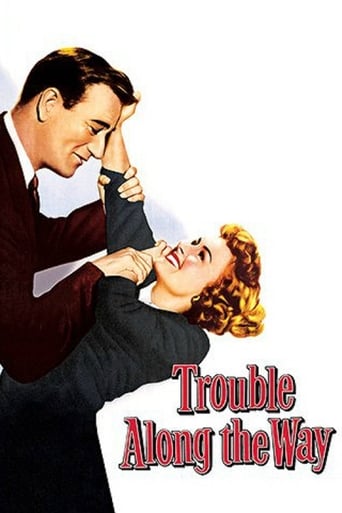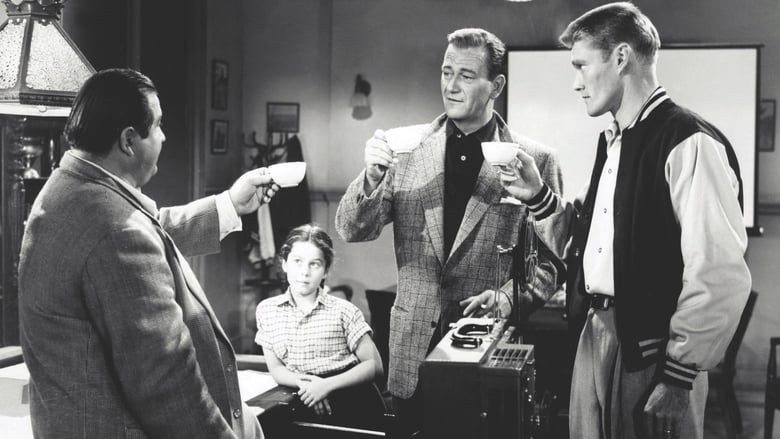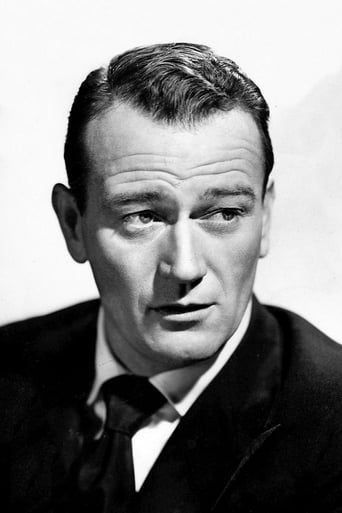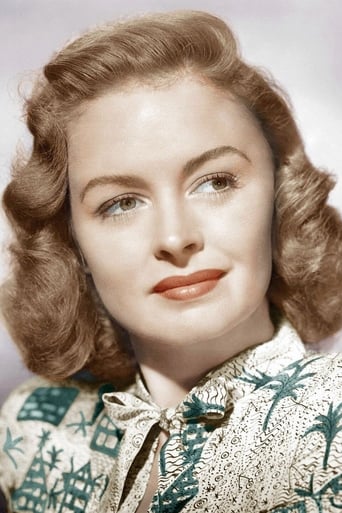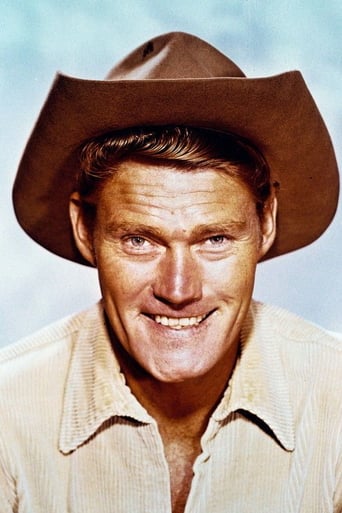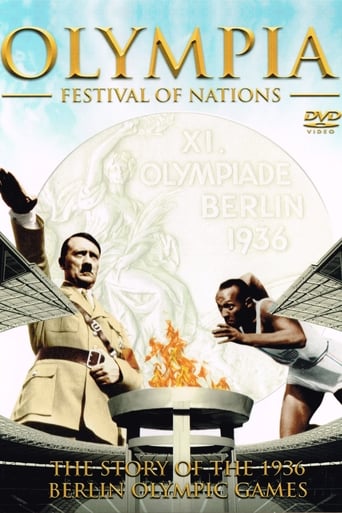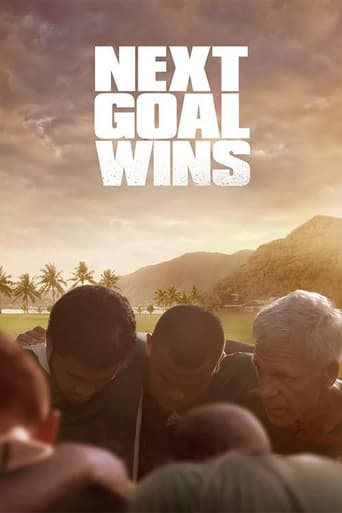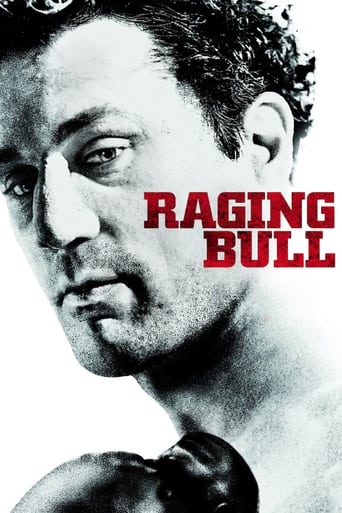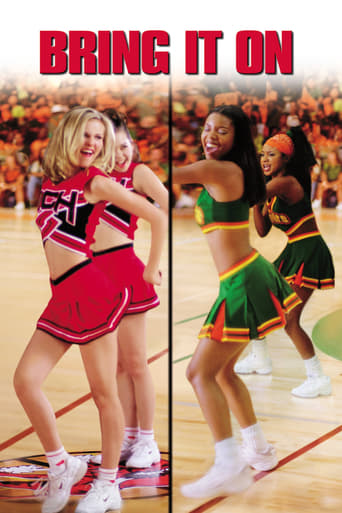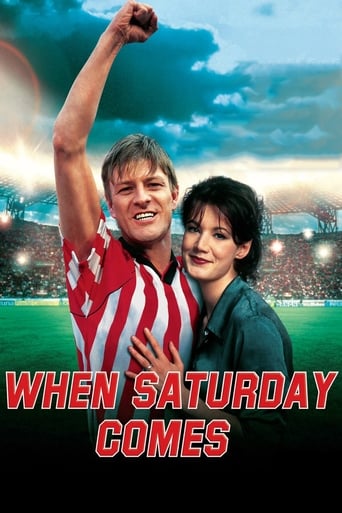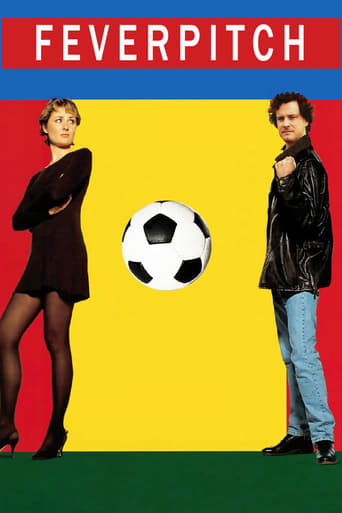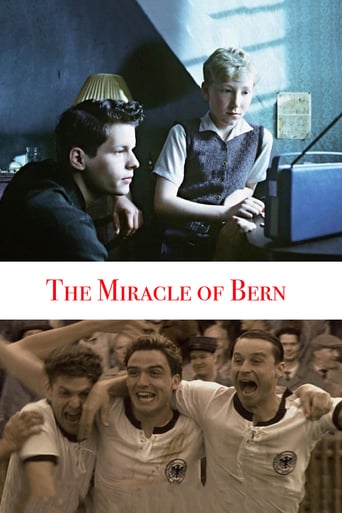Trouble Along the Way (1953)
Struggling to retain custody of his daughter following his divorce, football coach Steve Williams finds himself embroiled in a recruiting scandal at the tiny Catholic college he is trying to bring back to football respectability.
Watch Trailer
Free Trial Channels
Cast


Similar titles
Reviews
ridiculous rating
Masterful Movie
The story, direction, characters, and writing/dialogue is akin to taking a tranquilizer shot to the neck, but everything else was so well done.
By the time the dramatic fireworks start popping off, each one feels earned.
Chuck Connors, as an asst coach, has one of the best lines: "For once I'd like to make as much as the players."
Trouble Along the Way is directed by Michael Curtiz and collectively written by Melville Shavelson, Jack Rose, Douglas Morrow and Robert Hardy Andrews. It stars John Wayne, Donna Reed, Charles Coburn, Tom Tully, Sherry Jackson, Marie Windsor, Tom Helmore, Dabbs Greer and Leif Erickson. Music is by Max Steiner and cinematography by Archie Stout.A church run college faces closure so turns to one time football coach Steve Williams (Wayne) to coach their failing team. Steve is facing a custody battle to keep his young daughter so he accepts the position. Can he win his battles? He uses his cunning know how to hopefully do just that, but his methods on the pitch and off it aren't exactly conventional.Aside from the fact it is by definition a heart warmer, Trouble Along the Way has a lot going on. It pitches up with strong observations on single fatherhood, with Wayne's character having an interesting approach to life with his delightful daughter. It also gets in tight as to the role of a football coach, stripping bare educational advancements via sport. There's religious angles here as well, which although a touch heavy at times, they also make for an interesting thematic thread.Ultimately though, we want cheer, swagger, fun and love, and this has it in spades. Cast perfs are excellent, with Wayne's chemistry with both Reed and young Jackson an absolute treasure. Dialogue is sharp and funny, the court scenes especially providing laugh out loud moments, and of course the pic takes us exactly where we expect and want to go. A delightful comedy - cum romance - cum drama that escapes the threat of mawkishness with wit, intelligence and a big heart. 7/10
This is one of the six dozen non-western movies John Wayne made in his 50-year screen career. It's a good drama with comedy spread throughout, and a little romance. The Duke was in familiar territory besides his acting here, where he plays a football coach. He had been a star high school football player and had a scholarship for football at the University of Southern California (USC). Wayne has a good role as a single father, Steve Williams, raising daughter Carol, played by Sherry Jackson. Unfortunately, for him, the child welfare officer, Alice Singleton (played by Donna Reed) doesn't think pool rooms and athletic events are the best place to raise an 11- year old girl. Of course, she doesn't know the background of Carol's mother who was unfaithful to Steve and who wanted nothing to do with her daughter. Marie Windsor plays the bitter former wife, Anne McCormick, who lives a life of parties with her second husband. It's Anne who complained to the child welfare people that Steve was unfit as a father. We don't ever learn the reasons why in this movie, but Steve had been banned from coaching in major football leagues, including the Big Ten and Ivy League. He had been one of the best coaches in college ball. But he gets another chance with a small independent Catholic college, St. Anthony. The rector, Father Burke (played superbly by Charles Coburn), is desperate to find a way for the school to raise money to pay off its debt so it can remain open. Naturally, he thinks of a successful football program as the way to do that. But who and how to get the right man to pull it off?That's how Steve winds up at St. Anthony. The rest of the story blossoms from there. Other reviewers talk about the condition of college and professional sports at the time. The film has that, but it's incidental to the main double story. That is the single dad raising his daughter, and the small college surviving. This is a good story and an entertaining film that most should enjoy. I especially like the ending, which leaves it to the viewers' imagination as to how the characters will fare in the future. The acting is very good all around. Wayne showed in this and many other films that he could act and do more than brawl and shoot 'em up in Westerns. Although, it's hard to pass on a good John Wayne Western for entertainment. On a point of trivia – other reviewers have commented on the quote that Carol uses in the film, when she says what Steve's philosophy is: "Winning isn't everything, it's the only thing." People well into the 21st century may not know about that remark or its attribution during the last of the 20th century to legendary pro football coach, Vince Lombardi. The first recorded instance of Lombardi saying something like that was 1959. But this movie was made in 1953. And, as others have noted, the real source of the quote was UCLA Bruins Coach Henry "Red" Sanders. Sanders said something like it in 1950, and the Los Angeles Herald and Express ran it as a subhead in a story about Sanders on Dec. 7, 1953. A former sports writer for the paper, Bud Furillo, said that he first heard Sanders say it after UCLA lost its game to USC in 1949. No doubt the writers for this movie remembered having read or heard the phrase, so they included it in the screenplay for "Trouble Along the Way."The IMDb Web site shows 178 listings of John Wayne appearances in movies and TV shows. Of that number, six were TV shows, five were shorts and 167 were full-length movies. Wayne was uncredited in 24 of the 178 appearances – on one TV show, two shorts and 21 full-length movies. Of the remaining 146 full-length films, he either starred or co-starred in 142 of them. About half of his films were Westerns, the next largest genre was war and military films (about 2 dozen), then action/adventure, crime-mystery, comedy-romance, and drama.Here are some samples of the light humor in this movie. Carol, "Steve, why don't we go to a ballgame?" Steve, "When did you burn down the school?" Carol, "Okay. But, I'm only doing this for you." Steve, "Thanks, pal."Steve, "I hope you can sleep with all those bells." Carol, "I can always bang my head against the wall."Steve, "Care for a cigarette?" Alice, "No thank you." Steve, "It's the kind all the doctors smoke."Steve, "You just gotta quit looking at me like I was George Washington and Babe Ruth and Florence Nightingale all rolled into one."Father Burke, "Is there a Bible in the house or do you have to go to a hotel?"Steve, "Well, the trouble with us, father, is I'm a sensitive man and you're a gambler."Coach Buck Holman, "Are you of a forgiving nature?" Father Burke, "Well, I'm in that business."Steve, "I got something for you." Carol, "What's in this?" Steve, "A time bomb, what else? Open it and blow us all up."
I checked this out during a recent John Wayne retrospective on American Movie Classics because it sounded so different from the Duke's usual "w/w" fare (war & westerns). Here he plays Steve Williams, a disgraced professional football coach enlisted to build a revenue-producing team that will save a down-at-the-heels Catholic college from being forced to close. In the process he has to fight for custody of his daughter from a spiteful and vengeful ex-wife. Wayne plays this role beautifully; his performance makes us aware of the fine actor he made of himself as he worked his way up over the years from those low-budget westerns, learning all along the way. Donna Reed puts in a turn as a social worker, and Charles Coburn is in his usual fine fettle as Father Burke, rector of the failing college. Wayne/William's daughter is played very well by a young lady named Sherry Jackson, and there are many familiar faces among the character actors in the cast. Chuck Connors makes one of his earliest screen appearances here.The pacing is good, and the story keeps us involved. These are all interesting people, and we want to find out what happens to them. The script is intelligent, gritty, and extremely witty in many places. Also notable is a very on-the-money portrayal of the corrupting influence of big-time athletics at the college level, as Wayne/Williams pulls many shady tricks to field a team that can stand up to the ridiculously ambitious schedule that Father Burke manages to finagle. The commentary is even more relevant today, fifty years later, as college athletics have spun almost completely out of control.One of the nicest things about the movie is the way in which, surprisingly, it does not opt for the easy-way-out happy ending that we all think we see coming as soon as Donna Reed as the social worker comes on the scene. The film is brave enough to leave things a bit unresolved.Altogether an off-beat, intriguing, well-made, well-written, well-acted and thoroughly enjoyable little "sleeper" that is well worth your while.

